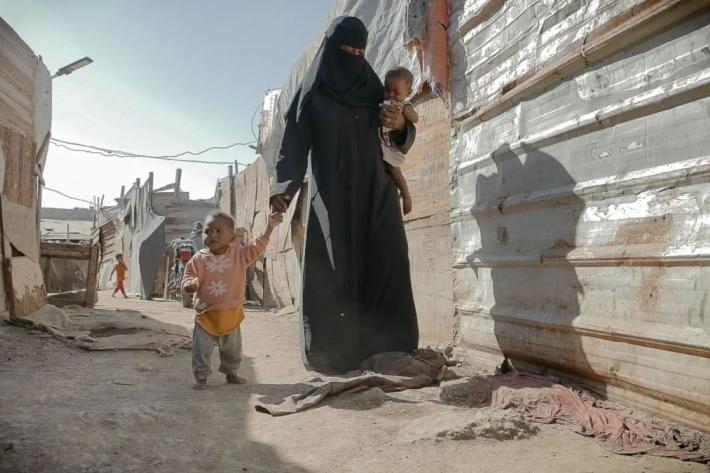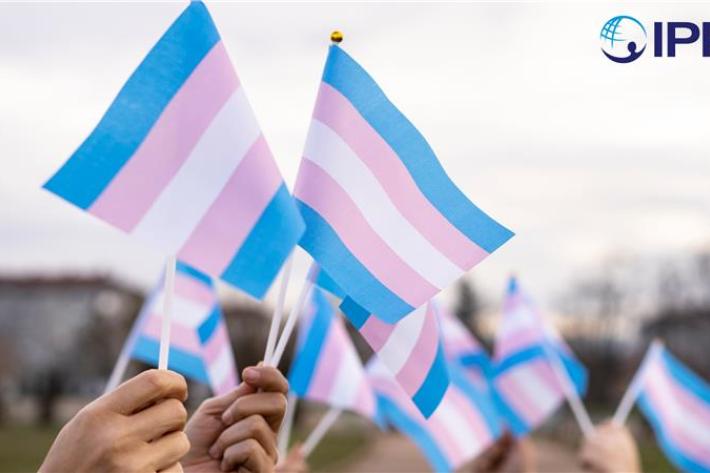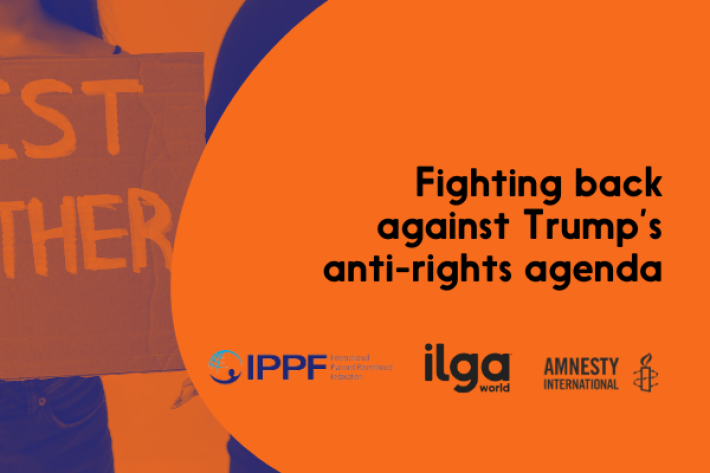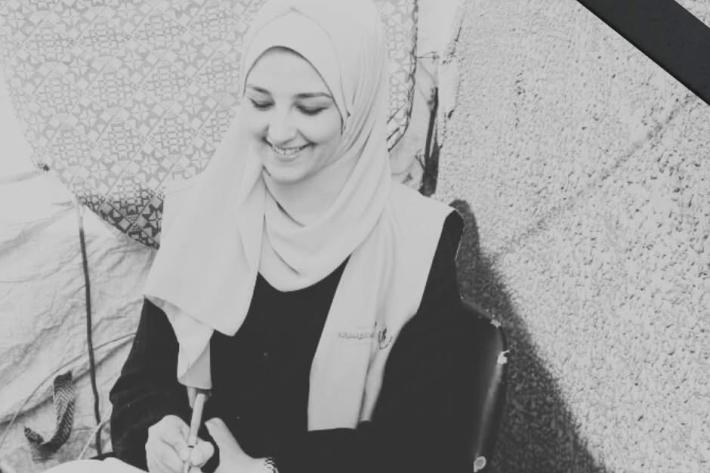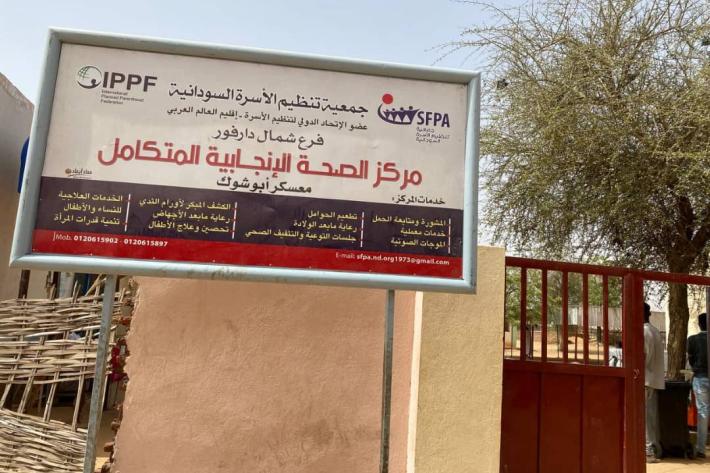
Spotlight
A selection of news from across the Federation

IPPF announces the launch of the call for applications for the post of Director General
The Director-General will play a crucial role in shaping IPPF’s strategic and operational direction, ensuring strong governance, transparency, inclusion, and collaboration.
Filter our news by:

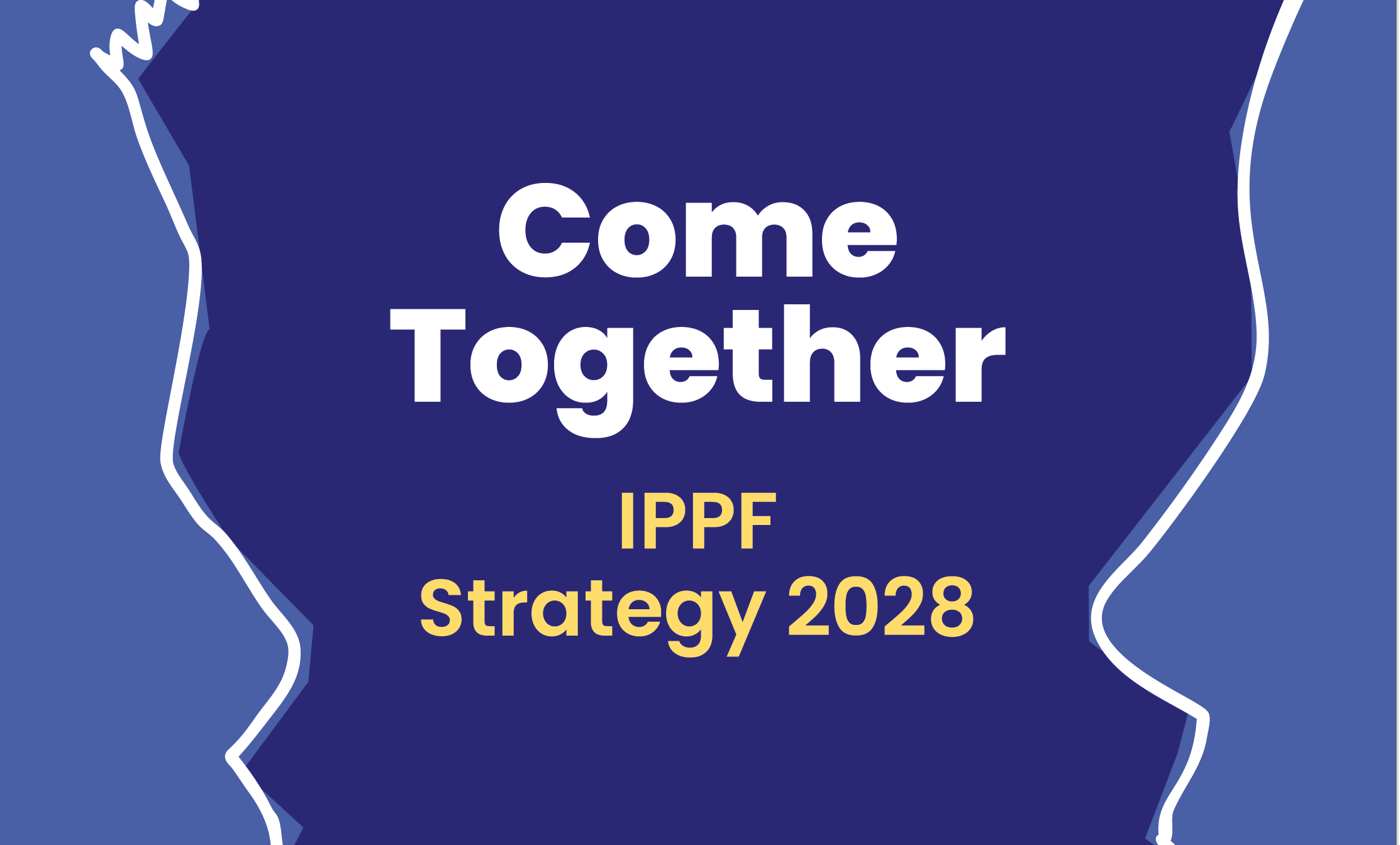
| 24 November 2022
Anti-Racism Declaration of Intent
Just over two years ago, the International Planned Parenthood Federation (IPPF) joined the world in condemning the brutal murder of George Floyd by police officers in the U.S., which sparked global protests and a subsequent global conversation on race and racism. The public outcry from IPPF was loud and sincere. However, it soon became clear that IPPF itself is not free from discrimination, biased views and racism. Staff began to rightfully question the perpetuation of racist and colonial tropes in our work, not only within the secretariat but across the Federation. They felt that IPPF's focus on equality, empowerment and ending discrimination must extend both to the workplace and beyond. An anti-racism report commissioned and delivered to us in 2021 also showed the cracks in our structures, with inequalities, power imbalances and racism spotlighted. As a leading global human rights organization focused on equality, empowerment, ending discrimination, and poverty eradication, it is especially critical that we internally reflect social justice principles. Spurred on by global resistance and internal concerns, we realized that we needed to find new pathways of work to live up to our reputation. The global reality today, where all kinds of rights are threatened daily, has also fuelled our responses to ensure that we stand up and ask ourselves difficult questions. We acknowledge and recognize that becoming an anti-racist organization is a constant learning curve. We, as IPPF, strongly oppose racism in all its forms and resolutely go for a cultural change that will shift the existing imbalances in power and process. In this regard, we accept our audit report's recommendations and have taken the first steps in ensuring that IPPF operates within a framework built on equity, diversity and inclusion. Our vision IPPF recognizes the fundamental need to move with expediency to radically dismantle and eradicate racism in all its forms. We need to install a framework that affirms the universality and inalienability of human rights, recognizing that racism violates them. These are the values that we aspire to, values that afford all our members and staff dignity and belonging while holding IPPF accountable. Our commitment The IPPF is committed to becoming a truly inclusive and anti-racist organization, where diversity is embraced, and promises to: Monitor and revisit our leadership structure at the secretariat and make it better reflect diversity. Embark on rewriting outdated policies and consider how racism is dismantled, along with its interplay with intersectionalities. Make our hiring, promotion and remuneration processes fair and equitable for all. Better reflect and address how discrimination based on race intersects with gender and sexuality, ethnicity, religion, and caste in a geographically diverse global federation such as ours in the way we work. Continue investigating ourselves to become a more inclusive, intersectional organization. Include clear markers for accountability in line with the objectives and indicators from the new IPPF strategy. Come together to reckon with our shared colonial past and use it to create a more open, fearless, and honest dialogue where we can address the persistent colonial legacies in our systems. Within the secretariat, we have already started implementing key recommendations from our report, including training with staff across all regions and sessions for IPPF leadership. A call for action This session seeks to build on this work and expand the focus to the Federation. It seeks to continue our discussion – where we look to the future and ask the question – what does a decolonized IPPF look like? Task forces, training sessions, and forums will be convened to ensure that all our systems, structures and safeguards reflect the anti-racist stance we are adopting and to continue our work to protect and fight for the rights of marginalized populations globally. To successfully achieve the radical change IPPF wants to make - to create a fully inclusive and respectful association that offers equal chances to all - IPPF needs you, its champions from the field that have been doing work on diversity, inclusiveness, equal chances and anti-racism for many years to support this process. We see this as a process in two tracks, where the secretariat's work is supported and strengthened by MA-driven initiatives. We ask MAs to join us In bringing this work to a higher speed and level by sharing your best practices, methods and tools. By providing your advice on what we can do and how to inclusively and authentically create spaces that are free of racism. By helping us move from questioning our processes that uphold colonial, white supremacist and imperialist ideas to developing new approaches that are driven by those involved and that truly address their needs. This is a walk together We are upending attitudes and ways of working that have been with us for too long. Our aim is to birth an environment that holds no discrimination and an organization that isn’t afraid of change. It's within our unlearning, learning and reflecting that we need to Come Together to advocate for change in our systems to act against oppression and injustices pervasive in our sexual and reproductive rights and services globally.

| 10 November 2022
Sexual and reproductive justice to deliver the Nairobi commitments
Today, the International Planned Parenthood Federation (IPPF) is helping launch the second report of the High-Level Commission on the Nairobi Summit, also known as the International Conference on Population and Development 25 (ICPD 25). The Commission is an independent advisory board comprised of 26 members from different sectors tasked with monitoring progress on the ICPD Programme of Action and Nairobi Summit Commitments. The programme of action contains commitments from 179 countries to put the rights, needs and aspirations of individual human beings at the centre of sustainable development, part of which includes achieving universal access to sexual and reproductive health for all. The report - ‘Sexual and reproductive justice as the vehicle to deliver the Nairobi Summit commitments’ - highlights sexual and reproductive justice as the key to the realization of the Nairobi Summit commitments. Sexual and reproductive justice is a universal concept. It includes the right to have or not have children, the right to parent one’s children in safe and sustainable environments, and the right to sexual autonomy and gender freedom. Monitoring the implementation of life-saving sexual and reproductive health and gender-responsive services is crucial to ensure accountability and human rights for all. However, while some progress has been made, many barriers persist, and millions worldwide still do not realize their sexual and reproductive rights. Progress on Nairobi Summit Commitments: Numerous country commitments made at the Nairobi Summit align with a sexual and reproductive justice framework. They pay explicit attention to marginalized and vulnerable populations, notably people with disabilities, refugees, migrants (particularly migrant women), young people and older persons. Indigenous peoples, people of African descent and other ethnic minority groups have received less attention. A slew of new reproductive rights legislation followed the Nairobi Summit, suggesting a basis for a sexual and reproductive justice framework. The high number of commitments prioritizing sexual and gender-based violence offers a powerful entry point for promoting sexual and reproductive justice. On the Summit’s Global Commitments, some improvement is evident in meeting unmet need for family planning. But no region has registered positive movement towards zero preventable maternal deaths. Greater access to family planning has yet to translate into better maternal health outcomes. There is some progress in offering comprehensive and age-responsive information and education on sexuality and reproduction and adolescent-friendly, comprehensive, quality and timely services. Certain regions and countries have advanced in providing timely, quality and disaggregated data. More must be done, but this creates opportunities for ensuring that data capture intersecting challenges and are used to inform laws, policies and programmes. Domestic and international finance is critical to sexual and reproductive justice but persistently lags commitments. More than 4 billion people globally will lack access to at least one key sexual and reproductive health service during their lives Dr Alvaro Bermejo, Director-General for the International Planned Parenthood Federation, said:

| 02 November 2022
IPPF at ICFP 2022
IPPF will be involved in a series of panel discussions and events concerning global abortion rights, disability and inclusion, universal health coverage, humanitarian response and sexual and reproductive health. Be sure to visit us at Booths 11 and 12, and please see below to download the full IPPF at ICFP schedule. What is ICFP? The International Conference on Family Planning is the world’s largest convening of family planning and SRHR experts. It has convened the global development community around a shared vision of universal access to family planning since 2009. ICFP is a network of advocates, researchers and scientists, community and government leaders, health practitioners, economists, conveners, civil society members, and young people who are joined by the belief that everyone deserves access to family planning services and products, no matter what. ICFP is more than a conference. It’s a platform. A community. And a movement.

| 08 September 2022
IPPF launches new and improved Medical Abortion Commodities Database
The International Planned Parenthood Federation has redeveloped and relaunched its Medical Abortion Commodities Database. The updated site was designed to be more user-friendly with improved accessibility on both desktop and mobile devices. MedAb.org is the only public source of information on country-level availability of quality medical abortion commodities. Launched in September 2018, MedAb.org has filled a knowledge gap and has been a reliable source of information on availability of quality medical abortion products at country level for four years. The site currently contains product information for 102 countries, including 22 brands of misoprostol, 44 brands of mifepristone and 15 brands of combipacks. In 2021, site use grew significantly, with more than 30,000 active users, so IPPF undertook multiple analyses to understand more about these users. We redesigned the site to improve user experience for a broader range of user types, including researchers and academics. With more than half of site users identifying as individuals seeking abortion care, we improved signposting to trusted partners so they can access reliable and timely information. Catherine Kilfedder, IPPF’s Senior Programme Adviser, Abortion, said: “We needed to rebuild our site to improve technical functionality, but we saw an opportunity to simultaneously improve user experience. We embarked on a human-centred design project to understand our users and design a site to better meet their needs.” Site use continues to grow, with more than 50,000 active users in the first eight months of 2022, and IPPF is thrilled to respond to this growing user base with a new and improved MedAb.org.

| 24 August 2022
Dr Chipo Gwanzura confirmed new IMAP co-chair
IPPF would like to congratulate Dr Chipo Gwanzura who has been confirmed as the new co-chair for the International Medical Advisory Panel (IMAP), alongside the current chair Dr Michael Mbizvo. Dr Gwanzura has demonstrated expertise in scientific research at clinical and community levels on maternal and child health, and sexual and reproductive health and serves on numerous scientific, knowledge and evidence SRH partnerships. Dr Gwanzura is passionate about advancing sexual and reproductive health rights of women and adolescents globally, regionally and locally. The IPPF team is looking forward to working closely with Dr Gwanzura during her tenure and engaging with her on the strategic priorities within the Federation. Learn about the other IMAP members
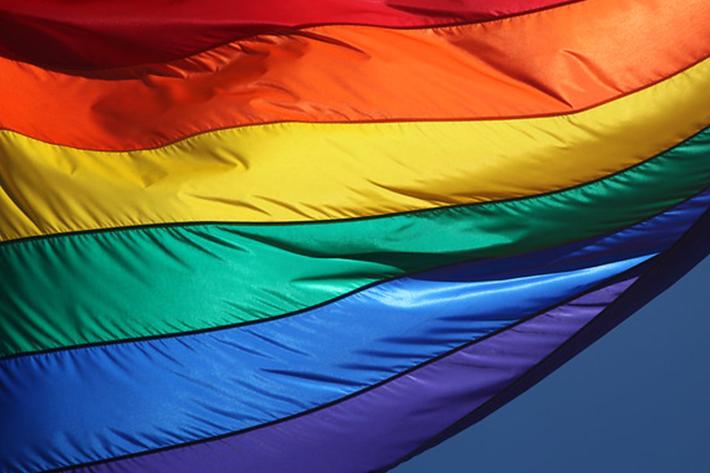
| 18 August 2022
Ugandan LGBTQI+ organization banned by government
On 3 August 2022, the Ugandan National Bureau for Non-Governmental Organizations unfairly halted the activities of Sexual Minorities Uganda (SMUG) – a prominent lesbian, gay, bisexual, transgender, and queer (LGBTQI+) rights organization – for failing to meet the bureau's registration requirements. SMUG has provided sexuality education and advocated for LGBTQI+ healthcare since 2004 and is well-known for providing services and guidance to the LGBTQI+ community in Uganda. The organization also contributes to Uganda's health goals, including the country's HIV/AIDS strategy, which includes the provision of healthcare to vulnerable and marginalized populations. Although SMUG applied to the Uganda Registration Services Bureau (URSB) in 2012, the URSB declined the organization's request on the grounds that SMUG was "operating illegally", a position the organization petitioned with no positive response. In a clear case of harassment and restrictions against Ugandan rights groups working on LGBTQI+ rights, the URSB further asserted that registering SMUG's name would be difficult, calling it "undesirable and un-registrable". In response to the ban the Africa Regional Director for the International Planned Parenthood Federation (IPPF) urged the Ugandan government to review its decision to suspend SMUG and to work towards accommodating the organization's mandate of advancing the rights of the LGBTQI+ community in Uganda. Marie-Evelynne-Petrus-Barry said: "As a global human rights organization and the world's largest sexual and reproductive healthcare provider, the International Planned Parenthood Federation upholds the rights of all people, regardless of their sexual orientation. "The Ugandan government's ban of SMUG has created huge anxiety among health service providers, human rights defenders, and members of the LGBTQI+ community, who risk their lives daily so that LGBTQI+ people can access healthcare and information just as any other person would. "We ask the Ugandan government to urgently reconsider its decision to suspend SMUG and to put an end to laws and policies that criminalize, target and endanger members of the LGBTQI+ community and the organizations that advocate for their rights." Petrus-Barry added: "IPPF works to ensure that people with diverse sexual orientation, gender identity and/or expression, and sex characteristics (SOGIESC) – including lesbian, gay, bisexual, trans, and intersex people have access to the full set of human rights enshrined in international human rights laws. IPPF is willing to work with the Ugandan government and other stakeholders to ensure that all Ugandan people can access these rights without restraint." For media enquiries, please contact Mahmoud Garga, Lead Specialist – Strategic Communication, Media Relations and Digital Campaigning, IPPF Africa Regional Office (IPPFARO) on [email protected] or +254 704 626 920 ABOUT IPPF AFRICA REGION (IPPFAR) The International Planned Parenthood Federation Africa Region (IPPFAR) is one of the leading sexual and reproductive health (SRH) service delivery organizations in Africa and a leading sexual and reproductive health and rights (SRHR) advocacy voice in the region. Headquartered in Nairobi, Kenya, the overarching goal of IPPFAR is to increase access to SRHR services to the most vulnerable youth, men and women, in sub-Saharan Africa. Supported by thousands of volunteers, IPPFAR tackles the continent's growing SRHR challenges through a network of Member Associations (MAs) in 40 countries. We do this by developing our MAs into efficient entities with the capacity to deliver and sustain high-quality, youth-focused and gender-sensitive services. We work with Governments, the African Union, Regional Economic Commissions, the Pan-African Parliament, and United Nations bodies, among others, to expand political and financial commitments to sexual and reproductive health and rights in Africa. Learn more about the IPPF Africa Region on their website or follow them on Facebook, Twitter, Instagram and YouTube.
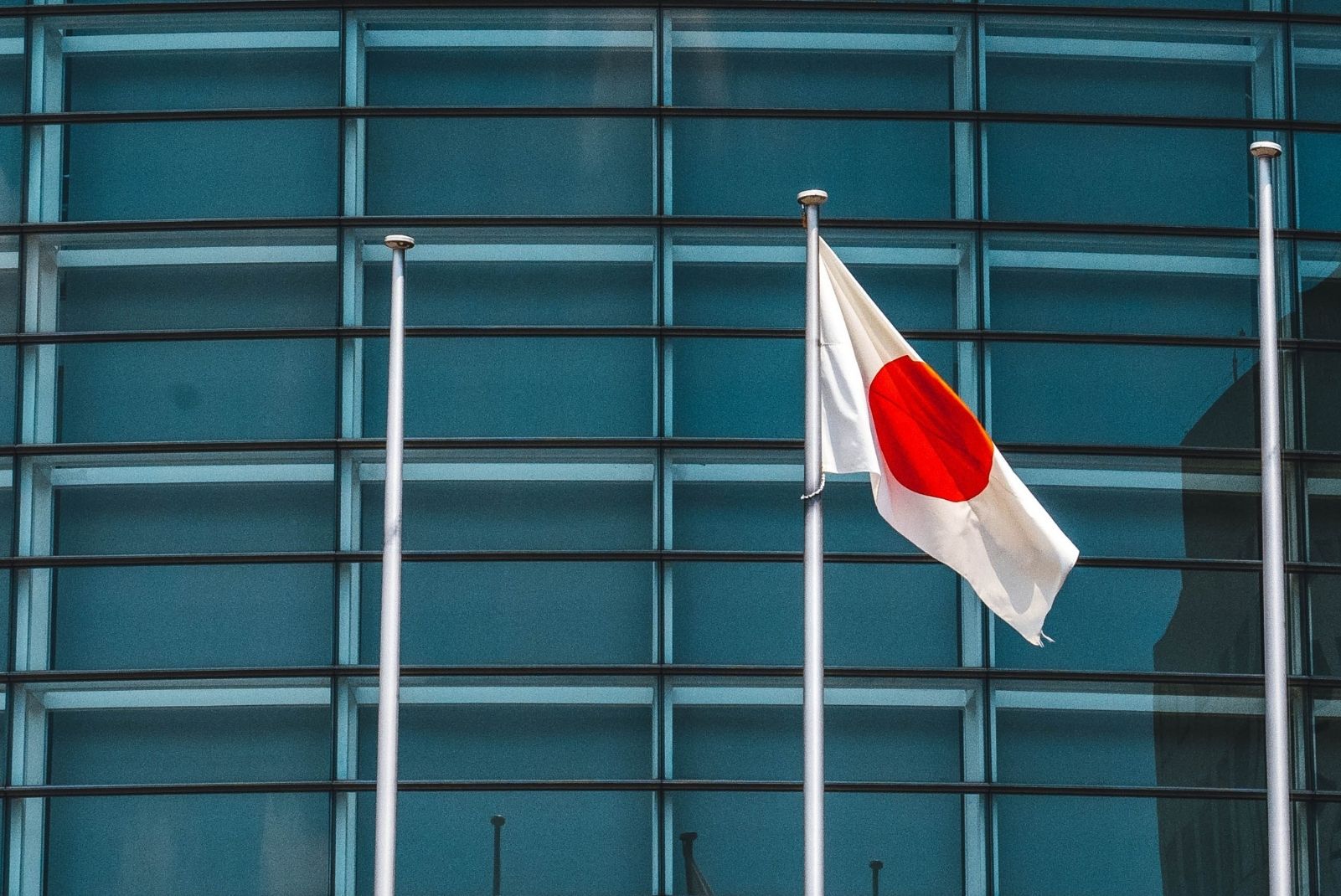
| 08 July 2022
Tribute to former Japanese Prime Minister Shinzo Abe, father of Global Universal Health Coverage (UHC)
We are speechless, angry and profoundly saddened by the news that former Prime Minister Shinzo Abe was brutally gunned down while delivering a public speech in support of his party’s candidate for the forthcoming Japanese election. The assassination of Mr Abe represents a shocking and cowardly act of violence that threatens the core values of humanity which he spent his entire life defending. Our thoughts go to his wife Akie and the people of Japan at this extraordinarily challenging time. During the Tokyo UHC Summit held in December 2017, IPPF delivered a message to Mr Abe saying, "Just as your grandfather was the father of UHC in Japan, we hope that you will continue to lead global UHC and be the father of global UHC". Mr Abe responded to IPPF’s message with passion and energy. He put UHC promotion at the heart of Japan's Global Health Diplomacy Strategy and became a genuine global leader in UHC, becoming an example for other world leaders. He also held the World Assembly for Women (WAW!) in Tokyo with the aim of building a 'society where women would shine' in Japan and worked tirelessly to promote the empowerment of women. Through the Tokyo International Conference on African Development (TICAD) 5 to 7, Mr Abe created global momentum for improved development cooperation in Africa. Dr Alvaro Bermeo, IPPF’s Director General, notes: "IPPF will continue to honour the work of former Prime Minister Abe and advance his commitment to universal health coverage that includes comprehensive sexual and reproductive health services. May he rest in peace." Ms Tomoko Fukuda, Regional Director of IPPF East, South-East Asia and Oceania Regional Office, recalls: 'I will never forget the way former Prime Minister Abe spoke with enthusiasm about the realisation of a society where women would shine at the WAW! We still have a long way to go to realise women's empowerment in Japan and around the world, but we will continue to build on the foundation of Mr Abe's efforts." Main photo by Roméo A. on Unsplash
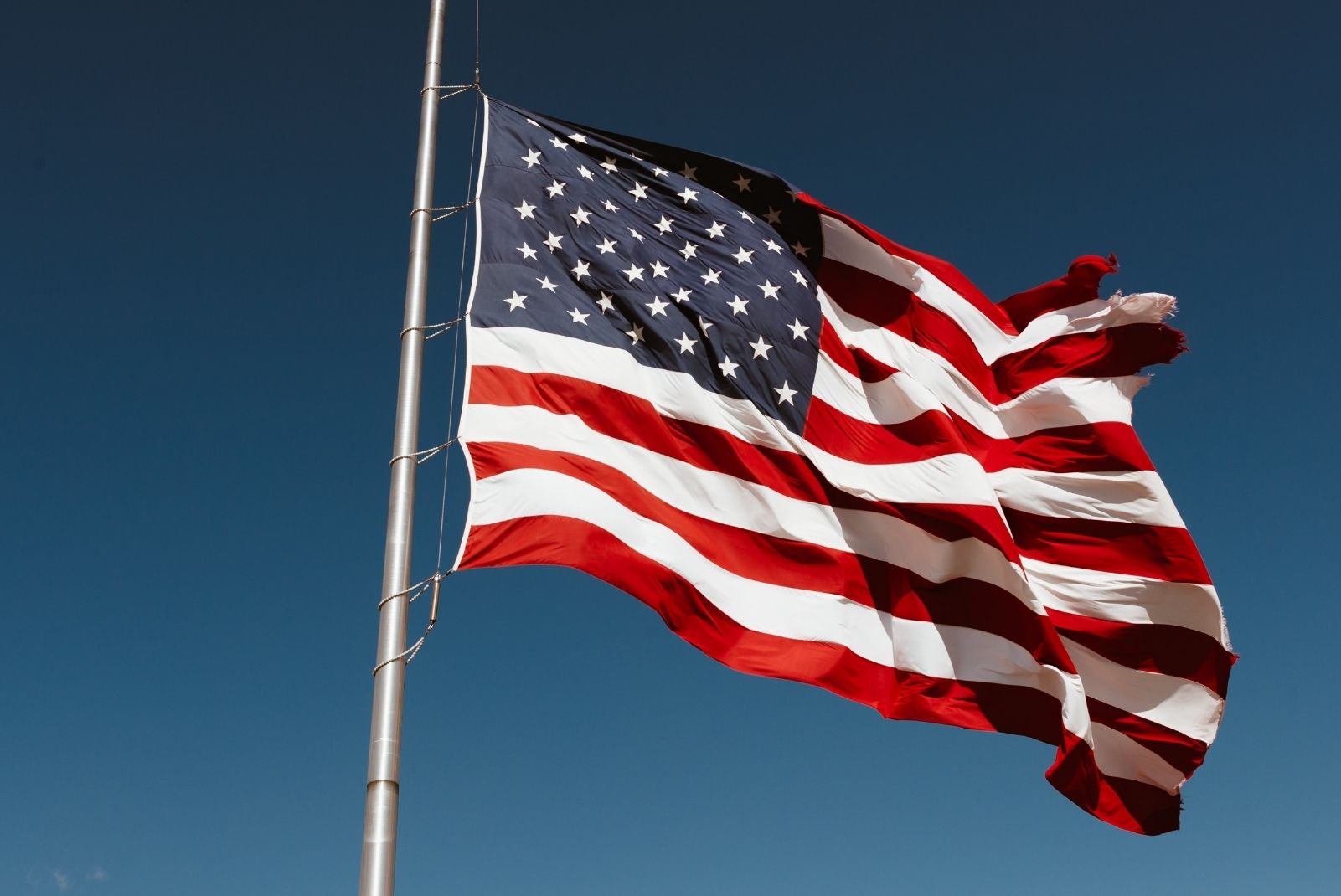
| 08 July 2022
IPPF Statement on the White House Executive Order to Protect Access to Reproductive Health Care Services
Today’s Executive Order Protecting Access to Reproductive Health Care Services signed by President Biden signals the US government’s intent to protect women, girls, and all people who may be denied an abortion or criminalized for seeking one. IPPF’s Director-General, Dr Alvaro Bermejo said: "Sadly, these efforts provide scant actual protection. The Biden administration is surely sincere in their desire to help women, but today’s meagre offerings demonstrate a shocking lack of imagination and preparation in advance of the current reality. We’ve had over eight months to prepare for the outcome of this Supreme Court." "Today’s Executive Order should have been the starting line when the judgement first dropped. It should have offered a clear, tangible pathway. It should not be a statement of work in progress, weeks after the loss of constitutional protections. Much of what is being proposed is already being done by non-state actors, many of whom have long been signalling this reality." The announcement of the Interagency Task Force on Reproductive Health Care Access is also another missed opportunity. We are asking the White House to share how it will direct the State Department and USAID to mitigate the impact of the denial of rights to those who need them further afield. Though the focus on ensuring abortion services within the US remains critical, the Administration must begin work right now with its partners to ensure that the impact on those most vulnerable outside of the US will be mitigated. Main image by Paul Weaver on Unsplash
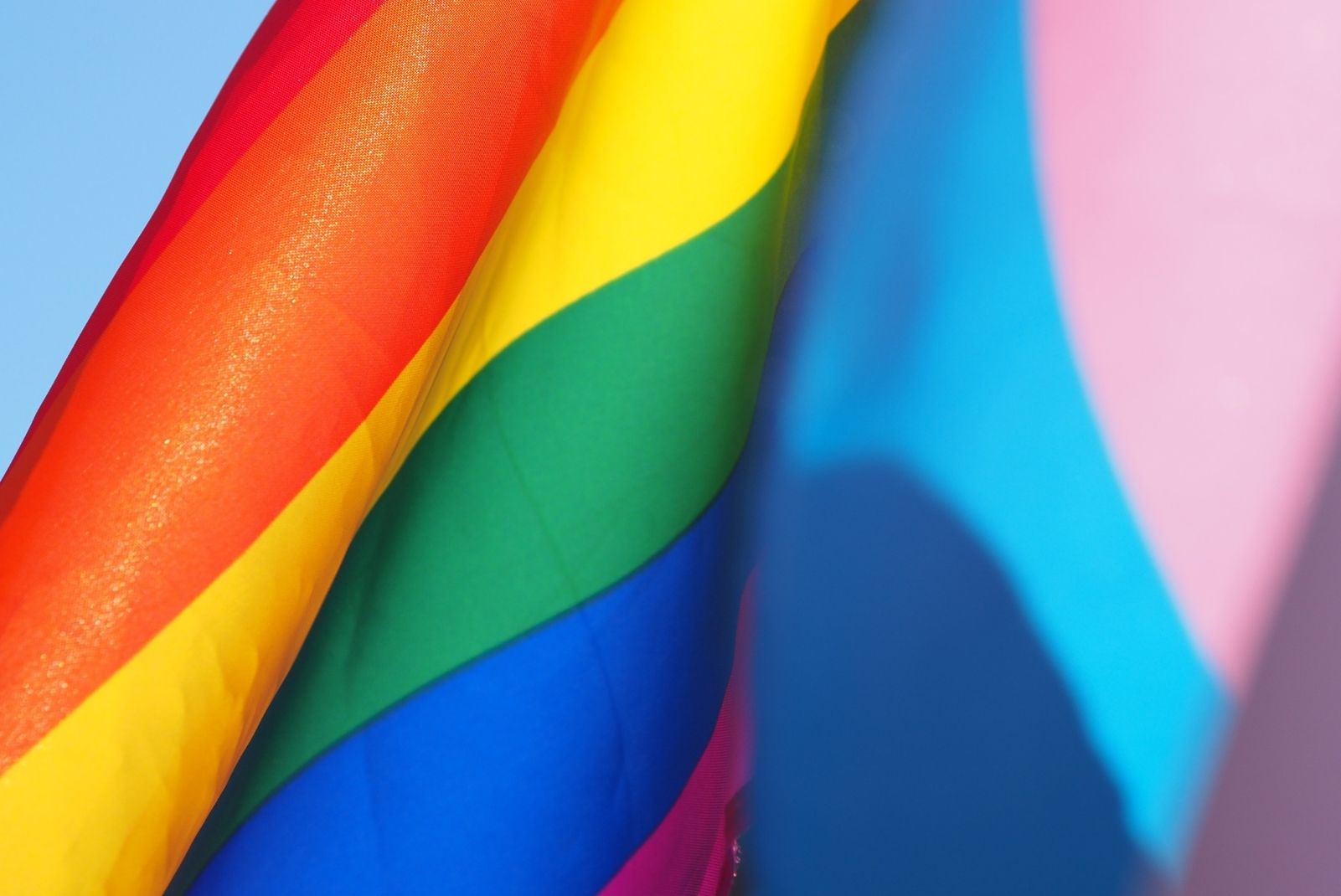
| 07 July 2022
IPPF celebrates UNHRC decision on protection against violence and discrimination based on sexual orientation and gender identity
IPPF celebrates the decision of the UN Human Rights Council to renew the Mandate of the Independent Expert on protection against violence and discrimination based on sexual orientation and gender identity on July 7th, at its 50th session. IPPF was actively involved in advocating for the renewal of this important mandate, working closely with a large coalition of civil society organizations, activists and Member States to encourage support for the renewal. It is fitting that this renewal comes on the heels of Pride Month in June. First established in 2016, this is the second time the mandate has been renewed, solidifying the commitment of the international community against discrimination and violence based on SOGI and unequivocal support to LGBTQI+ people. In addition to renewing the mandate of the Independent Expert to continue country visits and thematic reports, for the first time, this resolution expresses strong concern at existing laws, policies and practices criminalizing consensual same-sex conducts and relations and calls upon Member States to amend or repeal laws and policies that discriminate against persons on the basis of their sexual orientation and gender identity. IPPF works actively to advocate for all people’s human right to live free from violence and discrimination on any grounds, including real or perceived sexual orientation and gender identity. We look forward to continuing to support the work of the Independent Expert over the next three years. Main image by Cecilie Johnsen on Unsplash

| 30 June 2022
IPPF's Anti-Racism Review and Programme of Action
Like much of the world, we were horrified by the murder of George Floyd in the US in May 2020. Following the global conversation on race and racism, our staff felt strongly that our own focus on equality, empowerment, ending discrimination, and poverty-eradication must extend to the workplace. This is why in 2020, the International Planned Parenthood Federation (IPPF) proactively started a process of examining and addressing issues of racism and colonial legacies within IPPF. We commissioned our Anti-Racism Review to hold IPPF accountable. The Review was not confined to just our London office; it was a full and independent interrogation of the Secretariat as we felt strongly that no one should be excluded from a conversation as critical as this. The Review's findings were shared with all IPPF secretariat staff on 26 July 2021. We included a response from management, the Anti Racism Working Group and the Board of Trustees Statement on Anti-Racism. The report was a turning point for IPPF, and as much as it was difficult to read, we hope people felt safe sharing their experiences with us. IPPF anticipated that the report would uncover some hard truths on people's experience of racism within the workplace, and we have acknowledged and are humbled by the contributions from staff. We know talking about lived experiences of racism and discrimination takes an emotional and mental toll, and we are deeply sorry to our colleagues who have experienced racism and discrimination in the workplace. IPPF remains truly grateful for their contribution, which has led to practical insights and recommendations that the management team has taken forward, with oversight from our governance. IPPF has a duty to do better, and we are committed long-term to the principles of affirmative action and, through them, the Anti-Racism Programme of Action. In line with some of the recommendations, we have continued to engage as a management team, with a staff working group representing all regions, and a Board of Trustees Sub Committee, thereby creating complete oversight of the implementation of the recommendations. The Anti Racism Sub Committee is led by Bience Gawanas, who has global expertise in the area and was one of the Under-Secretary Generals who supported the internal efforts to combat racism within the UN. Currently, we feel that our management team and our governance reflect the diversity and experience necessary to decolonise the way we work. Our current Board of Trustees, formed in 2020, is made up of 15 people (including 20% young people under the age of 25) from 11 different geographies, including West Africa, Central Africa, Southern Africa, the Caribbean, Latin-America, Central Asia, the Middle East, Europe, North America, Oceania and South Asia. Our Global Leadership Team comprises of ten people from nine different countries, with each of our Regional Directors, who all identify as women, representing the diversity of the regions they lead. We were also a very high performer in the 2022 Global Health 50/50 Report and have rated a consistently high performer since 2020, achieving gender parity in our governing body and senior management in the range of 56-100% of women represented. Our Leadership is committed to creating an organisation that has no discrimination in how it operates and the services it offers. In trying to address some of the the report's recommendations, IPPF has: Begun a series of discussions, webinars and training to address some of the interpersonal and institutional racism that exists in the organisation. This has included training on aspects of microaggressions, unconscious bias and other pathways of racism that exist. We have interrogated our framing of issues within a more public domain through asset framing training with an anti-racism lens. Contracted a team of anti-racism trainers to conduct training across the Secretariat for the next six months to more deeply interrogate some key issues emanating from the report. For the last ten months, we have been working on a series of consultations focusing on our next five-year strategy, which has explicitly embedded anti-racism as central to our strategic direction. Critically we are working on our public statement of action for Anti-Racism – co-created with Member Associations through our training to be delivered at the IPPF General Assembly in November 2022. We felt strongly that it was too easy to focus on public sentiments and that we wanted to walk the talk as an organization before this, which is why the sequencing of the Anti-Racism Program of Action is as it is. You will see that evidenced in the management response. As part of our actions to ensure equity across the Secretariat, over the past 18 months, we have conducted a comprehensive pay and benefits review and bought a consistent approach to job evaluation, grading and pay scales at all levels and for all geographies across the Secretariat. We share these points not to underestimate some of the report's findings but to demonstrate that we take seriously the actioning of this work. We thank all staff who participated in the review and know that this was not easy. Still, we are grateful to have the recommendations and are committed to ensuring that we address these as holistically as possible. We look to the future with hope and commitment so that all our colleagues feel safe and valued while working for IPPF. Sincerely, Dr Alvaro Bermejo, IPPF Director-General









